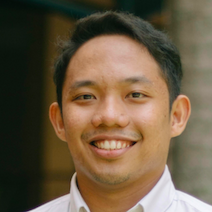

As the country joins the rest of the world in combatting an outbreak that has taken countless lives, the journey towards lasting peace in its southern region continues.
After decades of seemingly endless conflict, the government of the Philippines and the Moro Islamic Liberation Front finally closed a monumental chapter with the passage and ratification of the Bangsamoro Organic Law, paving the way for the creation of the Bangsamoro Autonomous Region in Muslim Mindanao (BARMM). On March 29, 2019, the Bangsamoro Transition Authority (BTA), the interim regional parliament, marked its first inaugural session, launching the next chapter of the peace process in Mindanao.
It’s important to look back on what's described as one of the most important peace agreements in this lifetime, and to revisit how far the BARMM has gone – 365 days later.
By mandate, the BTA is expected to produce priority bills which will serve as the hallmarks of the new bureaucracy.
As of writing, the education and local government codes are now in its final stages while the administrative, internal revenue, electoral, civil service and Indigenous People’s codes are also in the works. There is a need, however, to mainstream these codes for the locals, who are probably still unaware that the crafting of these laws is the heart of the transition period. (READ: [OPINION] Building social capital with the Bangsamoro is a must)
Whether the Parliament can deliver all codes before 2022 or not remains to be seen, but the hope remains intact, especially with the incredible support of the different Members of Parliament.
The Moro Islamic Liberation Front which currently leads the Government of the Day has also rallied behind the “moral governance” advocacy, signaling a new dawn of bureaucratic accountability inspired by the shared faith of the Muslims in the South. In fact, this might be the most important legacy of this interim government: to redefine public service and governance to its core, to portray BARMM as a new system that rejects corruption, and to reimagine the future of the Bangsamoro with all stakeholders involved.
Interim Chief Minister Ahod Balawah Ebrahim, Al Hadj who currently leads the new bureaucracy has also introduced social services to provide for the immediate needs of the once conflict-stricken region, which includes Project TABANG (Tulong Alay sa Bangsamorong Nangangailangan), a special initiative that brings major government services to the people, and the AMBAG (Ayudang Medikal Mula sa Bangsamoro Government) Program, which provides medical assistance to needy constituents of the region should they be confined in 12 partner hospitals of the BARMM Government.
In all fairness, the appreciation from the grassroots is overwhelming, especially those who rallied behind the “YES” campaign last year.
Of course, the region is currently on its feet to see how the new government will utilize and safeguard the unprecedented P65 billion block grant, and how it will address the socio-economic conditions of the Bangsamoro.
The first year of the Bangsamoro Government has seen its share of challenges. For example, the pressing issues on the separation pay of some employees from the defunct ARMM, the heated discussions on the inclusion of Cotabato City, the rehabilitation of Marawi City, and the entry of the new members of the bureaucracy through the Job Portal, among many others, are valid concerns that will contribute to the lasting legacy of this transition period.
It is important to acknowledge that the MILF is also undergoing its normalization track, as prescribed in the Comprehensive Agreement on the Bangsamoro. So, the transition phase is truly wholistic by nature through the bureaucracy and through social interventions on the ground.
While skepticism will remain, the Bangsamoro needs to pull everyone together, regardless of affiliation, ethno-linguistic group, or ideology, because at the end of the day, we will be the ones who will collectively redefine what it means to be Bangsamoro and redirect its future towards progress, development, and most importantly, self-determination.
Jorjani Sinsuat is a youth leader and writer currently working for the Bangsamoro Autonomous Region in Muslim Mindanao's Bureau of Public Information. Sinsuat is known for his work in preventing and countering violent extremism, and his efforts in engaging conversations on the Bangsamoro Peace Process in various academic and socio-civic platforms.